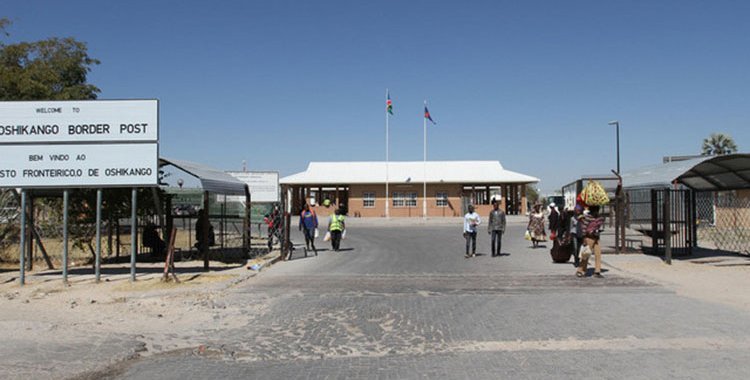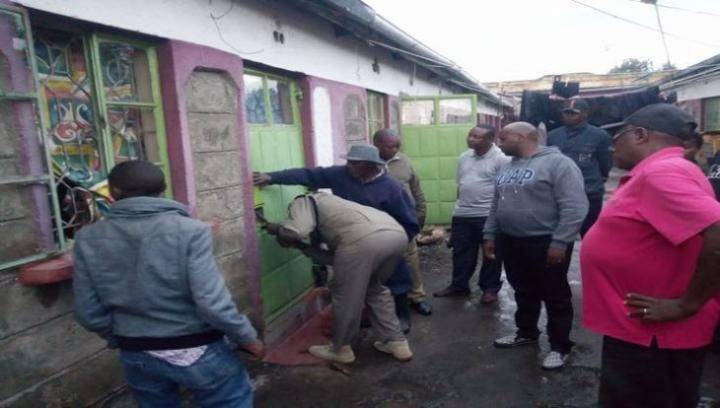ABOUT 100 illegal Angolan immigrants were deported to Angola last week as widespread hunger forces many people living along the border to flock to Namibia in search of food.
The Angolans cross into Namibia at illegal entry points in Omusati and Ohangwena regions in search of food, water, medical services and employment opportunities.
Ohangwena police spokesperson, inspector Kaume Iitumba said the police have noticed a high number of illegal Angolans in the region searching for job opportunities.
“We deport them because the border remains closed officially and in this time of Covid-19, we are trying to stop its further spread. We cannot allow people to move illegally into the country,” he said.
Angolans living in the border provinces of Cunene and Huila are experiencing food and water shortages due to persistent drought with malnutrition widespread among children.
Some Angolans are camped at Etunda irrigation scheme and Oshifo in Omusati region where they hope to get work or buy food.
Omusati governor Erginus Endjala told The Namibian the Angolans sneak into the country at night as the official entry points remain closed due to the Covid-19 pandemic. Only those seeking medical care are allowed to cross into Namibia at the border posts.
“The borders remain closed but as you know our borders are porous and Angolans enter the country through illegal entry points at night when the police are not patrolling. Angolan communities living along the border are faced with drought and hunger is the main driving force behind this whole illegal movement.
Endjala said that Angolan nationals are scattered all over Omusati region in search of employment opportunities.
“The situation is very bad in Angola. There are hunger and thirst. People are starving. These illegal immigrants are now moving all over the region looking for any kind of jobs just to be able to have something to eat. There is nothing that we can do for now.
“As a government, we can only assist them if the border was open and they have entered the country through legal means. We cannot assist illegal immigrants. This week, we are expecting to meet the Angolan ambassador and government representatives to inform them about the situation on the ground and see how they can assist their people either through providing them with basic food items,” said Endjala.
He further urged the inhabitants of the region not to panic but to report any illegal immigrant to their nearest police station in order for the police to register their details for record keeping.
“The residents must report these people to the nearest police station but they should not harm them. I am also urging the citizens to assist these vulnerable people in whatever way they can, because we are all one. I have also directed the traditional authorities to register these people coming to their villages,” he said.
With the ongoing fight against the spread of Covid-19, there are fears among Namibians that some of these Angolans might be infected with the deadly virus and are a risk to local inhabitants.
Inspector Iitumba said the police patrol the border at all times, and these illegal immigrants risk being shot or injured by the police, especially at night.
Some Angolans are said to be driving their cattle into Namibia in search ofbetter grazing.
One Angolan who spoke to The Namibian on condition of anonymity said they were forced to flee their homes due to starvation.
“It is so dry back home. We did not get any rains and our mahangu fields have been scorched. Most times we are forced to go to bed on an empty stomach because there is no food. The wells and boreholes have also dried up and we have nowhere to fetch water to drink or cook.
“I came here with the hope of securing employment to send something back home to my family. I can even work for free in exchange of food. My children are suffering back home because they have nothing to eat. I am desperately in need of any kind of job. We are hungry,” he said.
Angolans can be found roaming in towns such as Outapi, Oshifo, Omahenene, Ruacana, Opuwo, Oshikango and Onesi and also parts of Oshana and Oshikoto regions.
The Angolan ambassador to Namibia, Jovelina Imperial eCosta is expected to visit the Oshikango and Omahenene border posts this week to acquaint herself with the procedures as well as the challenges faced by Angolan immigrants.




